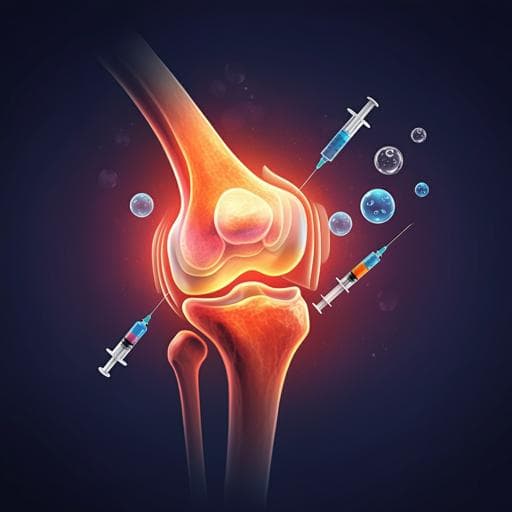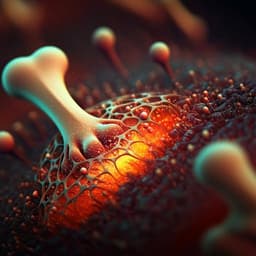
Medicine and Health
Cell-based versus corticosteroid injections for knee pain in osteoarthritis: a randomized phase 3 trial
K. Mautner, M. Gottschalk, et al.
Discover groundbreaking insights from a phase 2/3 randomized controlled trial that compares innovative cell therapies with corticosteroid injections for knee osteoarthritis, led by an expert team including Ken Mautner, Michael Gottschalk, and Scott D. Boden. This study reveals that, after one year, these advanced treatments did not outperform conventional corticosteroids in alleviating pain or enhancing function.
Related Publications
Explore these studies to deepen your understanding of the subject.







